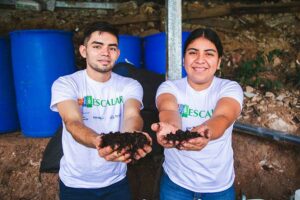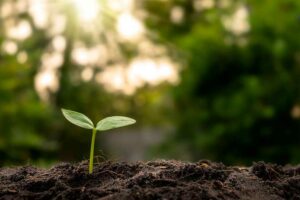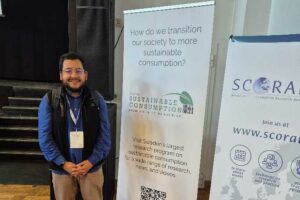Alter economies for social change center of dialogue held in Colombia
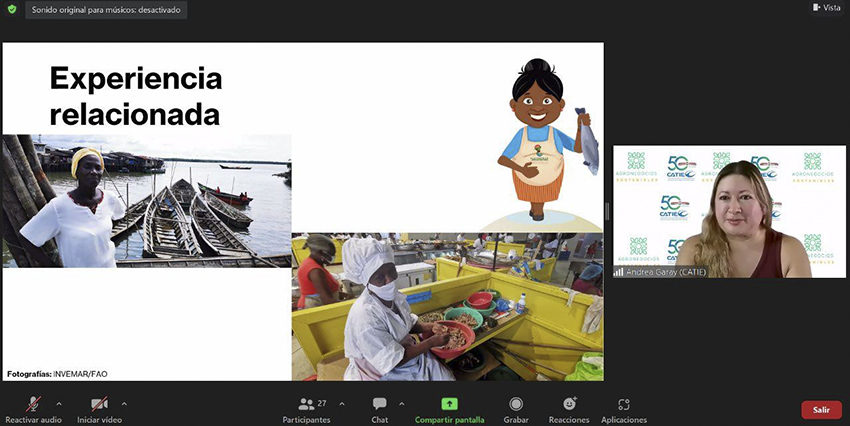
- Andrea Garay, an agribusiness specialist from the UEAAS/EfD at CATIE, was part of a multi-stakeholder virtual dialogue organized by Corporación Podion through the Servicio al Mundo program.
June 15, 2023. Sharing the experience of implementing a development project in communities in the Colombian Pacific, which involved elements of alter economies such as solidarity and promoting the local economy, was the main purpose of Andrea Garay's participation. Garay is an agribusiness specialist from the Unit of Environmental Economics and Sustainable Agribusiness (UEAAS/EfD) at the Tropical Agricultural Research and Higher Education Center (CATIE), in the dialogue held on June 2.
"The term 'alter economies' is related to other concepts such as social economy, solidarity economy, or popular economy," mentioned Garay. She added that these strategies, although coexisting with the current mode of production, do not fully correspond to its logic since they seek more solidarity-based alternatives for community development.
Representatives from partner organizations of the Servicio al Mundo program, implemented by Corporación Podion in Colombia, as well as members of solidarity economy associations, cooperatives from various regions of the country, and university professors, mainly from the San Gil University Foundation (Unisangil), participated in the multi-stakeholder dialogue.
Shared experience
Through Andrea Garay's participation in this virtual space, there was an opportunity to delve into the socioeconomic contrast that can be observed in the region, as well as the importance of discussing the care economy, which, according to the agribusiness specialist, sustains the country.
"According to the National Administrative Department of Statistics, unpaid care work is mostly performed by women and accounts for 20% of Colombia's GDP," explained Garay.
Additionally, the agribusiness specialist sought to highlight during her presentation the attributes of women in the Colombian Pacific, such as their resilience, cultural traditions, gastronomy, and their significant contribution to community food security, as well as their deep connection to the land, where they contribute to ecosystem conservation.
Importance for CATIE
This space helped highlight that the UEAAS/EfD at CATIE designs participatory methodologies that enable understanding the economic systems of the associations and cooperatives they work with throughout Latin America and the Caribbean. It also demonstrates that the experience gained in the field of sustainable and productive value chains helps showcase how strengthening the initial links in the chain results in better labor relations, more exchange alternatives, and improved livelihoods for producers and their families.
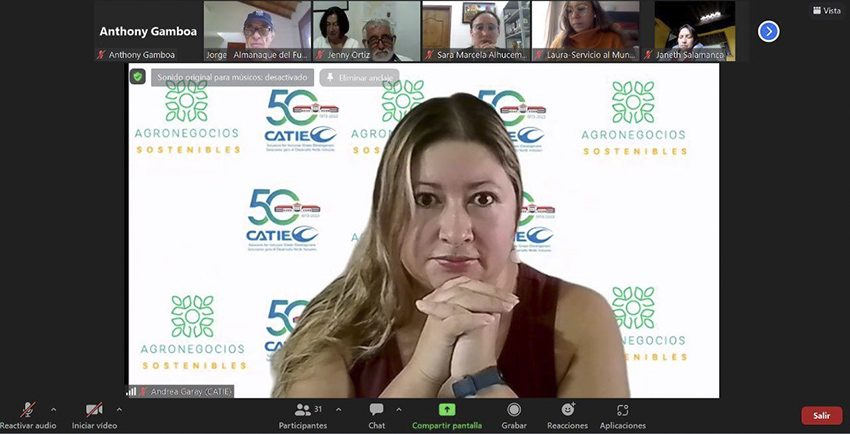
More information:
Andrea Garay
Agribusiness Specialist
Unit for Environmental Economics and Sustainable Agribusiness (UEAAS/EfD)
CATIE
Written by:
Marianela Argüello L.
Communication and Knowledge Management Officer
Unit for Environmental Economics and Sustainable Agribusiness (UEAAS/EfD)
CATIE

